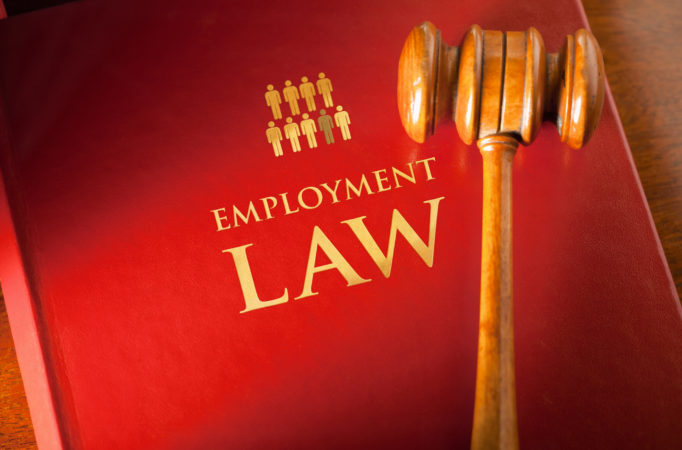Employment & Labor Law
Update on How to Apply the Paid Sick Leave under the Families First Coronavirus Relief Act
Here are some important updates on handling the paid sick pay due under the Families First Coronavirus Relief Act (“FFCRA”) that was passed into law on March 18, 2020. The U.S. Department of Labor (“DOL”) has issued some guidance on the following items. DOL has not yet issued regulations so it is possible that there may be changes or additional details on the following items.
Effective Date: The FFCRA will be effective April 1, 2020 (Wednesday).
Persons Already Laid Off: DOL says persons already laid off for lack of business or other reasons do not qualify for employer paid leave under the FFRCA because their reason for not working is the employer’s layoff decision rather than one of the six qualifying reasons for leave under the FFRCA. For reference, the six circumstances qualifying for leave under the FFCRA are:
- The employee is subject to a Federal, State, or local quarantine or isolation order related to COVID-19.
- The employee has been advised by a health care provider to self-quarantine due to concerns related to COVID-19.
- The employee is experiencing symptoms of COVID-19 and seeking a medical diagnosis.
- The employee is caring for an individual who is subject to an order as described in subparagraph (1) or has been advised as described in paragraph (2).
- The employee is caring for a son or daughter of such employee if the school or place of care of the son or daughter has been closed, or the child care provider of such son or daughter is unavailable, due to COVID-19 precautions.
- The employee is experiencing any other substantially similar condition specified by the Secretary of Health and Human Services in consultation with the Secretary of the Treasury and the Secretary of Labor.
Please also see our prior update providing more detail, such as the limits on this pay and the dollar-for-dollar reimbursement by the I.R.S. for any employer paid leave that qualifies under the FFCRA.
The main point in the DOL’s most recent guidance is persons already laid off who incur one of the above qualifying reasons are not entitled to FFCRA paid leave because they were already not working due to a non-qualifying reason.
Intermittent Paid Leave: As expected, DOL has clarified that intermittent paid leave under the FFCRA is only available for the employee to stay home with a child whose school is closed or child care program/provider is unavailable for COVID-19 reasons. This particular leave can total up to 12 weeks and is paid at a lower rate than some of the other qualifying reasons. It is paid at 2/3 of the employee’s regular pay, with a maximum daily limit of $200 per employee. DOL has not stated whether intermittent leave taken for a portion of a day would still have a maximum daily limit of $200 or a proportionate cap based on the portion of the day taken off (we suspect the limit will not change, even though that is unfair relative to those who do take the whole day off).
Small Employer Exemption: While there is a lot of discussion about this, it should be noted that the following exemption is only available to employers with less than 50 employees. It is also only available for paid leave to care for a child due to school closures or child care program/provider unavailability due to COVID-19 reasons (which paid leave can run up to 12 weeks total). It is not available for other FFCRA paid leave circumstances, such as doctor’s directions, even if the employer otherwise meets the following conditions. The Act states that an employer with less than 50 employees may exempt itself from the paid leave for child care due to COVID-19 school closures or child care provider unavailability if paying this leave “would jeopardize the viability of the small business as a going concern.” DOL now says this exemption applies when “an authorized officer of the business has determined that:
- The provision of paid sick leave or expanded family and medical leave would result in the small business’s expenses and financial obligations exceeding available business revenues and cause the small business to cease operating at a minimal capacity;
- The absence of the employee or employees requesting paid sick leave or expanded family and medical leave would entail a substantial risk to the financial health or operational capabilities of the small business because of their specialized skills, knowledge of the business, or responsibilities; or
- There are not sufficient workers who are able, willing, and qualified, and who will be available at the time and place needed, to perform the labor or services provided by the employee or employees requesting paid sick leave or expanded family and medical leave, and these labor or services are needed for the small business to operate at a minimal capacity.”
Please contact one of the following Houston Harbaugh attorneys with questions or more information regarding the above or any other aspect of the FFCRA.
Craig M. Brooks– 412-288-2214
Catherine S. Loeffler– 412-288-2262
About Us
Claims and suits brought against employers by employees are a large part of the cases being handled by the Employment lawyers at Houston Harbaugh. We focus on assisting and counseling our clients to be positioned to avoid claims, and if the claims are brought, to be prepared to defend against them.

Craig M. Brooks - Practice Chair
An employment and labor attorney, Craig primarily represents management, providing advice on how to handle employee issues and actions, as well as defending or pursuing claims in court and before government agencies on matters.
An employment and labor attorney, Craig primarily represents management, providing advice on how to handle employee issues and actions, as well as defending or pursuing claims in court and before government agencies on matters including:
- Employment discrimination claims
- Wage and hour matters
- Sexual and other harassment investigations and claims
- Family and Medical Leave Act
- Wrongful discharge
- Labor/Union matters
- Restrictive covenants
- Affirmative action programs
- Defamation
- Privacy
Craig also represents individuals with advice and pursuing claims arising out of their employment.

